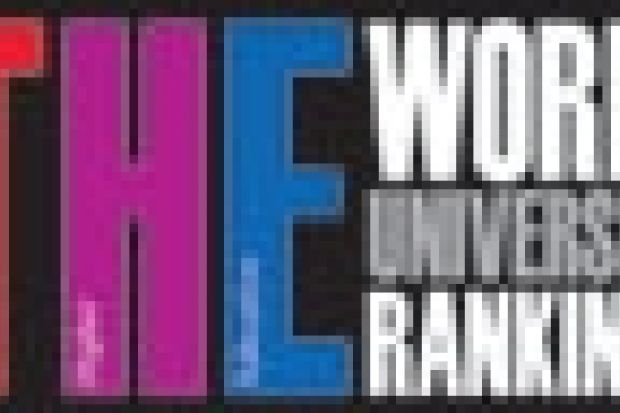The publication of the Times Higher Education World University Rankings last week caused a global debate - with chest thumping and soul searching in roughly equal measure.
In Europe, the mood was gloomy. Science Business, the online science news service, said the results made "sobering reading for Europe's universities as a whole".
Germany had 14 institutions in the top 200, with 10 for the Netherlands, six for Switzerland and four for France. Science Business said the tables "show how investment in higher education produces world-class universities capable of attracting the best students and academics".
It said that the "embarrassment" for European higher education "is compounded because the 2010-11 World University Rankings...uses a new, broader methodology."
In Canada, The Globe and Mail reported on its front page that Toronto had "nabbed a spot among the top 20 universities in the world, in what is arguably the most influential set of global university rankings".
David Naylor, president of the University of Toronto, said: "The public appetite for rankings seems endless. This year Times Higher Education consulted widely to pinpoint weaknesses in other ranking systems and in their previous approach."
In The Montreal Gazette, Vaughan Dowie, the executive head of public affairs at McGill University, warned that universities in Quebec were struggling to match global competition for professors, students, research and infrastructure money. He said underfunding "is the ticking bomb in the Quebec university system".
In Australia, a shake-up of the traditional hierarchy led the media to focus on methodological debates. The Sydney Morning Herald said that university executives had been "left scratching their heads" at the performance of institutions in New South Wales. It quoted Simon Marginson, professor of higher education at the University of Melbourne and a member of THE's editorial board, warning that mixing the subjective factors such as opinion surveys with objective indicators "has no rationale in sound social science".
The Dong-A Ilbo in Korea reported that the 28th-placed Pohang University of Science and Technology (Postech) "is Korea's first to make the top 30 in a world survey conducted by a globally renowned organisation".
It noted that funding was a key factor in Postech's success: "Postech ranks first in educational investment among Korean universities."
In Taiwan, the success of National Tsing Hua University, ranked joint 107th, was celebrated by the institution's vice-president, Yip Ming-chuen, who welcomed the revised rankings methodology. He told Focus Taiwan that the school's research papers "may not be considered large in volume, but they are groundbreaking and of a high quality".
The South African magazine Business Day lamented that the University of Cape Town was the only South African institution in the top 200 but noted that the rankings had been published amid a political row over the value of league tables.
In answer to a parliamentary question, Blade Nzimande, the higher education minister, warned that global league tables were "limited in their biased use of a range of indicators". But he was accused by Juanita Kloppers-Lourens, the Democratic Alliance spokeswoman for higher education, of "not caring" about whether South African universities were meeting international standards.
In the US, Forbes magazine celebrated the success of US institutions in the tables, which had 72 places in the top 200, given the "bad press" the country usually received for the "failures of its education system".
Figures may show that 30 million US adults are functionally illiterate, and the US may be only 35th out of 57 countries for mathematics literacy, the magazine said, "but when it comes to higher education, no one on earth does better than the US".
The American website The Huffington Post reported that the rankings were "causing quite a stir". It asked its readers: "Is this list better than the rest?"
There was little consensus in the 136 posts that followed, with views depending on university affiliation. One poster, "Sheoples", agreed with our assessment of Harvard University at number one: "Crimson wins out in terms of sheer research money and is the richest university. In today's age...it's about endowments and the power that comes from that...hiring and attracting the best in the field."
THE WORLD VIEW
Explore the World University Rankings in depth and find more news and analysis at THE World University Rankings 2010-2011
Manipulate the rankings to create a personalised view of global higher education by downloading our iPhone app from the Apple store.
Email your comments, questions and other feedback to rankings@ timeshighereducation.co.uk.
EDITOR'S NOTE: University of Oslo
A key principle of our revised rankings system is that it includes only institutions that have assented to join the profiling process and have provided and verified the data we sought.
Unfortunately, since the rankings list was published last week, the University of Oslo has contacted Times Higher Education to inform us that, because of an error on its part and an oversight in the data quality-control process, some of the data it supplied were incorrect.
A reanalysis of the data by Thomson Reuters has found that Oslo would have been ranked at 186th in the world.
Register to continue
Why register?
- Registration is free and only takes a moment
- Once registered, you can read 3 articles a month
- Sign up for our newsletter
Subscribe
Or subscribe for unlimited access to:
- Unlimited access to news, views, insights & reviews
- Digital editions
- Digital access to THE’s university and college rankings analysis
Already registered or a current subscriber? Login
